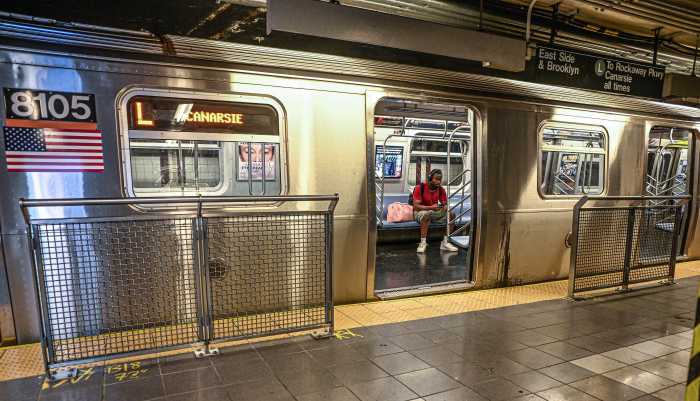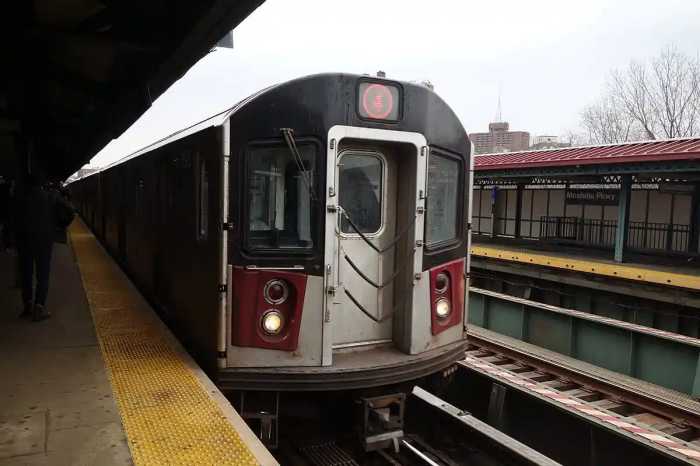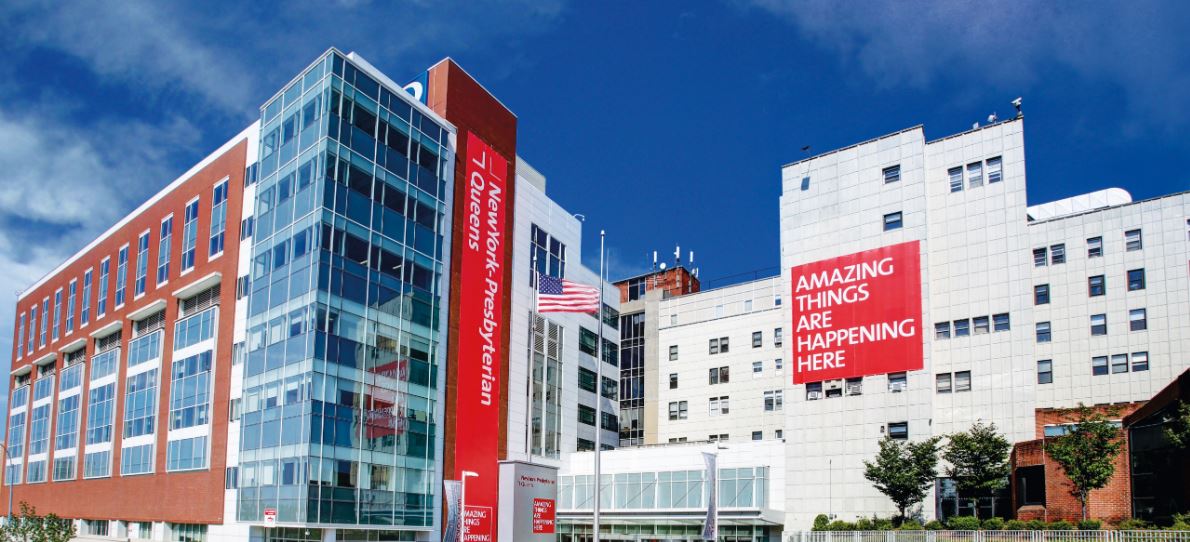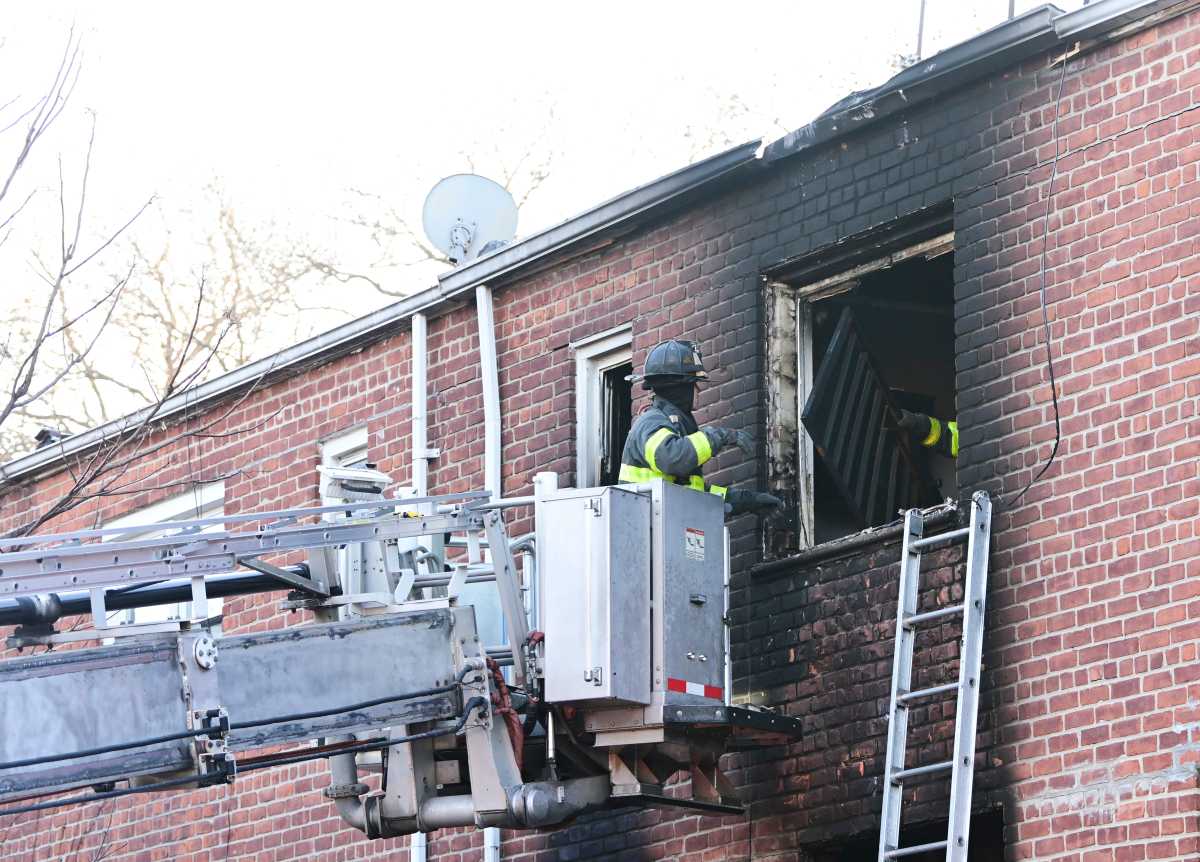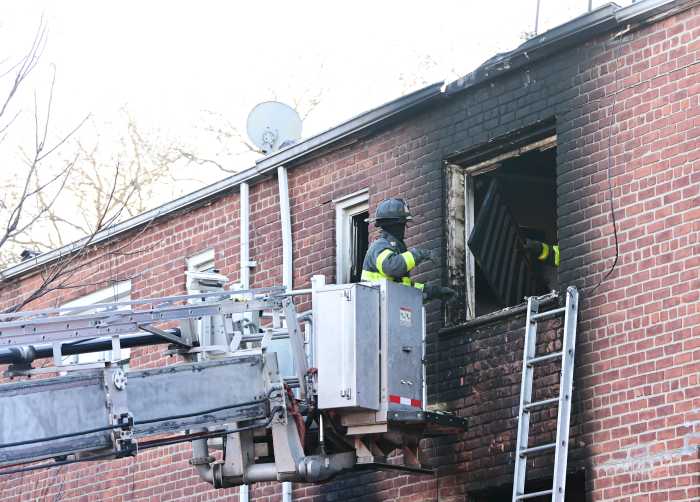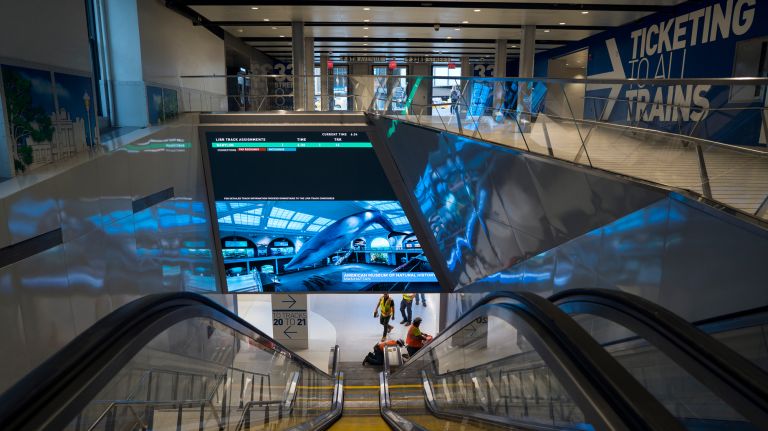
Community groups from across the city slammed Gov. Andrew Cuomo for his plan to sell the redevelopment of Penn Station to private companies.
Cuomo said Monday the state had finalized their $1.6 billion redevelopment plan of a joint venture with three private partners to turn the historic post office into the Moynihan Train Hall.
The groups gathered on the steps of the James A. Farley Post Office on Tuesday to argue that plans to expand Penn Station into a new retail plaza would do nothing to fix the underlying problems of crumbling transit infrastructure, and that privatization would only hurt New Yorkers.
“Instead of meaningful overhauls, we get cosmetic improvements that don’t improve the system’s performance,” said Charles Khan, organizing director for the Strong Economy For All Coalition.
Vornado Realty Trust, Related Companies and Skanska USA will contribute a combined $600 million to the redevelopment and will operate the 700,000 square feet of retail space in the new train hall. The building is slated to open in 2020.
Penn Station has long suffered from overcrowding, serving more than 600,000 riders a day. Proponents say the plan would decrease congestion while giving a necessary upgrade to infrastructure.
However, Renata Pumarol, deputy director for New York Communities for Change, said Cuomo should instead impose higher taxes on millionaires and billionaires, such as Vornado and Related, to fund infrastructure improvements. Pumarol compared the plan to President Donald Trump’s infrastructure strategy of selling off public assets for private investment.
“Cuomo is trying to position himself as a progressive Democrat, and giving away public goods to Wall Street is the opposite of being a progressive,” Pumarol said.
Gary LaBarbera, president of the Building and Construction Trades Council of Greater New York, called Tuesday’s protest “outrageous.”
“There has absolutely been no bigger champion for New York’s infrastructure than Gov. Andrew Cuomo,” LaBarbera said, adding that a myriad of development projects have created much-needed middle-class jobs.



